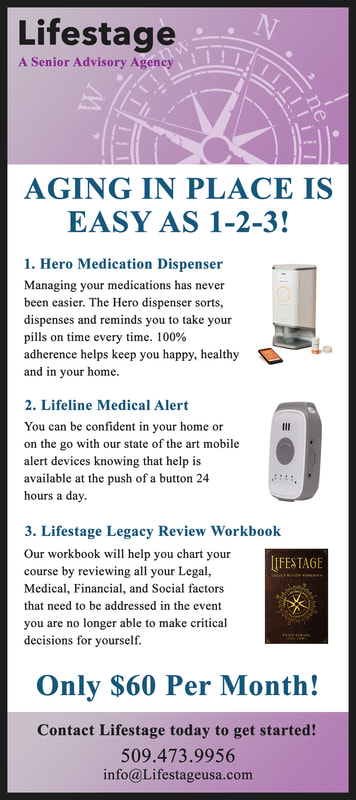The fear of falling becomes more common as people age, even among those who haven't fallen. Overcoming this fear can help seniors stay active and prevent future falls. Doing things like getting together with friends, gardening, walking, or going to the local senior center can help you stay healthy. The good news is, there are many ways to help prevent falls. “As we age, we are continuously challenged to defy gravity,” says Dr. Dorothy Baker, PhD, Director of the Connecticut Collaboration for Fall Prevention (CCFP) at Yale University School of Medicine. “What makes us vulnerable to gravity is the fact that certain systems of our bodies are not working at peak performance. Many people have been weakened by unhealthy lifestyles, chronic disease, illness, and injury. We have to de-emphasize the environment as the reason why we fall and instead focus on how we can better interact with the environment in order to stay on our feet.” There are 6 factors that relate to falls:
If you do happen to fall, stay still on the floor for a moment and take a few deep breaths to try to relax. This will help you gather your thoughts and determine if you are hurt before attempting to get up. If you have a Medical Alert pendant you will want to push it so that responders can be alerted to your fall incident. A fall is a time sensitive event. Getting help to someone in under 20 minutes provides for the best outcomes. A Medical Alert system provides 2-way communication with a response associate to get the appropriate assistance in a reasonable amount of time. Today’s Medical Alerts systems are shower safe and not only work around the home but are mobile and can offer automatic falls detection should a person fall, and they are unable to call for help. You may hear your doctor or pharmacist preach to you about medication adherence, but what does that mean? Simply put it is just taking your medications as prescribed. Medication adherence rates of 80% or more are needed for optimal therapeutic efficacy. However, it is estimated that adherence to chronic medications is only around 50%. According to the Annals of Internal Medicine failure to take medications as prescribed results in an estimated 125,000 deaths annually and at least 10% of hospitalizations. The financial cost of medication nonadherence has been estimated at as much as $289 billion annually. Increasing medication adherence may have a greater impact on health and wellness than any other medical intervention. Adherence rates tend to go down as time passes after the initial prescription is written. Barriers to adherence may include factors such as getting prescriptions filled, remembering to take medication on time, and understanding the directions on all the bottles. Many pharmacies offer automatic refill options, and some will even mail medications directly to your home which can relieve much of the burden associated with obtaining refills. Some medication schedules can be complicated which makes it harder to stay on schedule every day. If you find it is difficult to follow the instructions on your medications or forget to take them on time every day you may benefit from tools such as medication reminders or automated medication dispensing systems. Sometimes people may even quit taking a medication all together due to adverse side effects. While it is understandable why a person may do this, it can be extremely dangerous. Before you quit taking any medication it is critical that you talk with your doctor or pharmacist first. If you are suffering from side effects they may be able to alter the dose or prescribe an alternative that that will work better for you. Knowing that taking your medications appropriately can make all the difference in terms of health outcomes, it is important to come up with a system that works for you. Some people will do just fine with a medi-set, others may need to set up an automatic cycle fill, many would benefit from technologies like medication dispensers or automated reminders and others still may need greater levels of help in an assisted living setting. By taking the time to set up a system that works for you, you will likely benefit in terms of better health and quality of life. |
Location |
Click to set custom HTML
|




 RSS Feed
RSS Feed
